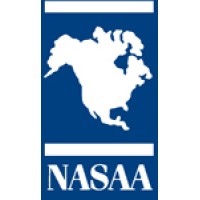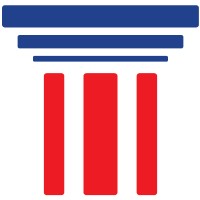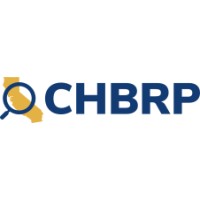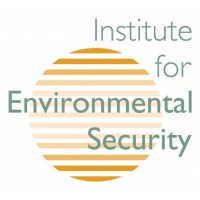Company Details
economic-progress-institute
15
1,034
921
economicprogressri.org
0
ECO_2424075
In-progress

Economic Progress Institute Company CyberSecurity Posture
economicprogressri.orgThe Economic Progress Institute – formerly The Poverty Institute – is a nonpartisan research and policy organization dedicated to improving the economic well-being of low- and modest-income Rhode Islanders. Since the organization was founded by Linda Katz and the late Nancy Gewirtz in 1999, it has become a respected authority on issues impacting the economic vitality of our residents and our state.
Company Details
economic-progress-institute
15
1,034
921
economicprogressri.org
0
ECO_2424075
In-progress
Between 700 and 749

 EPI Global Score (TPRM)
EPI Global Score (TPRM)XXXX



No incidents recorded for Economic Progress Institute in 2025.
No incidents recorded for Economic Progress Institute in 2025.
No incidents recorded for Economic Progress Institute in 2025.
EPI cyber incidents detection timeline including parent company and subsidiaries

The Economic Progress Institute – formerly The Poverty Institute – is a nonpartisan research and policy organization dedicated to improving the economic well-being of low- and modest-income Rhode Islanders. Since the organization was founded by Linda Katz and the late Nancy Gewirtz in 1999, it has become a respected authority on issues impacting the economic vitality of our residents and our state.


Organized in 1919, the North American Securities Administrators Association (NASAA) is the oldest international organization devoted to investor protection. NASAA is a voluntary association whose membership consists of 67 state, provincial, and territorial securities administrators in the 50 states,

Changing Georgia Policy, Changing Georgians’ Lives – Since 1991 The Georgia Public Policy Foundation is a 501(c)(3) non-profit, nonpartisan research institute. Our mission is to improve the lives of Georgians through public policies that enhance economic opportunity and freedom. We believe

Media Literacy Now informs and drives policy change at local, state, & national levels in the U.S. to ensure all K-12 students are taught media literacy so that they become confident & competent media consumers and creators. The messages, images, information, and experiences we engage with every da

The California Health Benefits Review Program (CHBRP) is an independent program housed at the University of California. It provides the California Legislature with timely, independent, and accurate analyses of proposed legislation (bills) that would mandate health insurance benefits (or repeal exist

CRAE promotes the human rights of children. It does so by: lobbying those who hold power; undertaking strategic litigation; carrying out research; empowering and mobilising others, including children, to take action; and providing legal information and raising awareness in relation to children’s ri

The Institute for Environmental Security (IES) is an international non-profit non-governmental organisation established in 2002 in The Hague, in order to increase political attention to environmental security as a means to help safeguard essential conditions for peace and sustainable development. T
.png)
IICA hosts insightful session on Digital Governance and Cybersecurity with, Special DG, BISAG-N, MeitY, Sh. Vinay Thakur...
The U.S. National Institute of Standards and Technology (NIST) has awarded more than US$3 million to strengthen cybersecurity workforce...
NIST is awarding 17 cooperative agreements to organizations in 13 states to address the nation's ongoing shortage of qualified cybersecurity...
The University of West Florida is positioned to further its robust research presence in Northwest Florida following the approval of a...
As the United States invests in transforming its manufacturing sector to reduce emissions and produce clean technologies, it has an...
The nation's new AI Center of Excellence, supported by the Indonesia government, that will foster localized AI research, nurture local talent and drive...
The dual-use nature of AI highlights the growing importance of addressing AI security in South Korea's national defense.
This webinar explored the intersection of cybersecurity and digital trade, highlighting the implications for developing countries navigating a rapidly...
In Northern Virginia, GMU created the first cybersecurity engineering major in the country, which helps support its bustling C5I center.

Explore insights on cybersecurity incidents, risk posture, and Rankiteo's assessments.
The official website of Economic Progress Institute is http://www.economicprogressri.org.
According to Rankiteo, Economic Progress Institute’s AI-generated cybersecurity score is 743, reflecting their Moderate security posture.
According to Rankiteo, Economic Progress Institute currently holds 0 security badges, indicating that no recognized compliance certifications are currently verified for the organization.
According to Rankiteo, Economic Progress Institute is not certified under SOC 2 Type 1.
According to Rankiteo, Economic Progress Institute does not hold a SOC 2 Type 2 certification.
According to Rankiteo, Economic Progress Institute is not listed as GDPR compliant.
According to Rankiteo, Economic Progress Institute does not currently maintain PCI DSS compliance.
According to Rankiteo, Economic Progress Institute is not compliant with HIPAA regulations.
According to Rankiteo,Economic Progress Institute is not certified under ISO 27001, indicating the absence of a formally recognized information security management framework.
Economic Progress Institute operates primarily in the Public Policy Offices industry.
Economic Progress Institute employs approximately 15 people worldwide.
Economic Progress Institute presently has no subsidiaries across any sectors.
Economic Progress Institute’s official LinkedIn profile has approximately 1,034 followers.
Economic Progress Institute is classified under the NAICS code 921, which corresponds to Executive, Legislative, and Other General Government Support.
No, Economic Progress Institute does not have a profile on Crunchbase.
Yes, Economic Progress Institute maintains an official LinkedIn profile, which is actively utilized for branding and talent engagement, which can be accessed here: https://www.linkedin.com/company/economic-progress-institute.
As of November 28, 2025, Rankiteo reports that Economic Progress Institute has not experienced any cybersecurity incidents.
Economic Progress Institute has an estimated 1,023 peer or competitor companies worldwide.
Total Incidents: According to Rankiteo, Economic Progress Institute has faced 0 incidents in the past.
Incident Types: The types of cybersecurity incidents that have occurred include .
.png)
Angular is a development platform for building mobile and desktop web applications using TypeScript/JavaScript and other languages. Prior to versions 19.2.16, 20.3.14, and 21.0.1, there is a XSRF token leakage via protocol-relative URLs in angular HTTP clients. The vulnerability is a Credential Leak by App Logic that leads to the unauthorized disclosure of the Cross-Site Request Forgery (XSRF) token to an attacker-controlled domain. Angular's HttpClient has a built-in XSRF protection mechanism that works by checking if a request URL starts with a protocol (http:// or https://) to determine if it is cross-origin. If the URL starts with protocol-relative URL (//), it is incorrectly treated as a same-origin request, and the XSRF token is automatically added to the X-XSRF-TOKEN header. This issue has been patched in versions 19.2.16, 20.3.14, and 21.0.1. A workaround for this issue involves avoiding using protocol-relative URLs (URLs starting with //) in HttpClient requests. All backend communication URLs should be hardcoded as relative paths (starting with a single /) or fully qualified, trusted absolute URLs.
Forge (also called `node-forge`) is a native implementation of Transport Layer Security in JavaScript. An Uncontrolled Recursion vulnerability in node-forge versions 1.3.1 and below enables remote, unauthenticated attackers to craft deep ASN.1 structures that trigger unbounded recursive parsing. This leads to a Denial-of-Service (DoS) via stack exhaustion when parsing untrusted DER inputs. This issue has been patched in version 1.3.2.
Forge (also called `node-forge`) is a native implementation of Transport Layer Security in JavaScript. An Integer Overflow vulnerability in node-forge versions 1.3.1 and below enables remote, unauthenticated attackers to craft ASN.1 structures containing OIDs with oversized arcs. These arcs may be decoded as smaller, trusted OIDs due to 32-bit bitwise truncation, enabling the bypass of downstream OID-based security decisions. This issue has been patched in version 1.3.2.
Suricata is a network IDS, IPS and NSM engine developed by the OISF (Open Information Security Foundation) and the Suricata community. Prior to versions 7.0.13 and 8.0.2, working with large buffers in Lua scripts can lead to a stack overflow. Users of Lua rules and output scripts may be affected when working with large buffers. This includes a rule passing a large buffer to a Lua script. This issue has been patched in versions 7.0.13 and 8.0.2. A workaround for this issue involves disabling Lua rules and output scripts, or making sure limits, such as stream.depth.reassembly and HTTP response body limits (response-body-limit), are set to less than half the stack size.
Suricata is a network IDS, IPS and NSM engine developed by the OISF (Open Information Security Foundation) and the Suricata community. In versions from 8.0.0 to before 8.0.2, a NULL dereference can occur when the entropy keyword is used in conjunction with base64_data. This issue has been patched in version 8.0.2. A workaround involves disabling rules that use entropy in conjunction with base64_data.

Get company history
















Every week, Rankiteo analyzes billions of signals to give organizations a sharper, faster view of emerging risks. With deeper, more actionable intelligence at their fingertips, security teams can outpace threat actors, respond instantly to Zero-Day attacks, and dramatically shrink their risk exposure window.
Identify exposed access points, detect misconfigured SSL certificates, and uncover vulnerabilities across the network infrastructure.
Gain visibility into the software components used within an organization to detect vulnerabilities, manage risk, and ensure supply chain security.
Monitor and manage all IT assets and their configurations to ensure accurate, real-time visibility across the company's technology environment.
Leverage real-time insights on active threats, malware campaigns, and emerging vulnerabilities to proactively defend against evolving cyberattacks.




